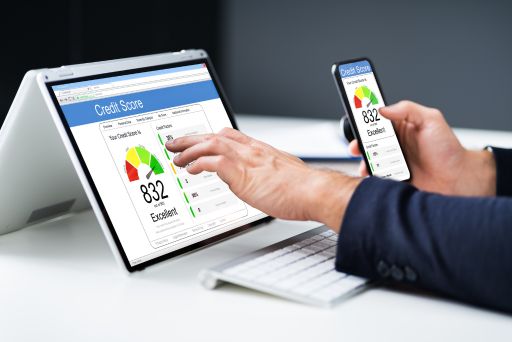
Establishing strong business credit is crucial for securing funding, managing cash flow, and growing your company. If you’re applying for a business loan or preparing for funding, a comprehensive Free Business Credit Checklist is essential to stay organized and increase your chances of approval.
This guide walks you through each step you must take — from researching lenders to gathering documentation — with detailed explanations to help you understand the process. Let’s dive into the key components of a free business credit checklist that every small business owner should follow.
Research Lenders
The first step in your free business credit checklist is to research lenders who offer small business loans. Each lender — whether it’s a traditional bank, credit union, or online lender — has different:
- Requirements
- Interest rates
- Documentation needs
- Approval timelines
Compare lenders based on their business loan products, and don’t hesitate to contact them directly to understand what they need from you. This helps you tailor your loan application to their expectations.
Check Your Credit Report and Credit Score
Before applying, check your credit report and credit score — both personal and business, if available. These scores influence whether you’ll be approved and what terms you’ll receive.
- Personal credit score is especially important if your business is new.
- Business credit score (from agencies like Dun & Bradstreet or Experian) reflects your company’s creditworthiness.
Request free reports, correct any errors, and work on improving your score before applying. A strong credit score improves your odds of securing favorable financing.
Prepare a Business Plan
A well-structured business plan demonstrates to lenders that you have a clear strategy for profitability and loan repayment. Include the following key components in your plan:
- Executive Summary: This is a concise overview of your business, goals, and what you seek in funding.
- Company Description: Provide information about your company’s mission, history, structure, and what makes it unique.
- Organization and Management: Detail the management team, including resumes, bios, and the legal structure (e.g., LLC, S-Corp).
- Products and Services: Explain what you offer, your pricing model, and what problems your products/services solve.
- Market Analysis: Include information about your industry, target market, competitive landscape, and trends.
- Sales and Marketing: Discuss how you’ll attract and retain customers, marketing strategies, and sales forecasts.
- Financial Information: Provide a summary of financial data such as revenue, expenses, assets, liabilities, and projections.
- Funding Request: Be specific about the amount you need, how you’ll use the funds, and how long it will last.
Create a Cash Flow Statement
A cash flow statement shows how money moves in and out of your business. It helps lenders assess:
- Whether your business generates enough cash to cover loan repayments
- When cash inflows and outflows occur
Use historical data and projections to show sustainability and planning.
Prepare Your Profit and Loss Statement (P&L)
A Profit and Loss Statement (P&L) gives a snapshot of your company’s performance over time. This includes:
- Revenue
- Cost of goods sold (COGS)
- Operating expenses
- Net income
Your P&L statement proves to lenders that your business is profitable or on a path to profitability.

Gather Required Documents for a Loan Application
A complete Loan Documentation Checklist is key to speeding up the loan approval process. Here’s what most lenders require:
Loan Documentation Checklist
- Completed Small Business Credit Application (attached by lender)
- Entity Documentation (see checklist below)
- 3 Years of Personal Federal Tax Returns, with all schedules and statements (for each guarantor)
- 3 Years of Business Federal Tax Returns, if applicable (for each affiliated entity)
- Year-to-Date P&L Statement (accrual basis)
- Year-to-Date Balance Sheet (accrual basis)
- Individual Financial Statement, for each guarantor
- Business Debt Schedule, if applicable
- Certification of Beneficial Owners, if applicable
Entity Documentation Checklist
Organize documentation based on your business type:
Sole Proprietorship
- Fictitious Business Name Statement (if applicable)
General Partnership (GP)
- Partnership Agreement and amendments
Limited Partnership (LP) & Limited Liability Partnership (LLP)
- Partnership Agreement and amendments
Limited Liability Company (LLC)
- Articles of Organization
- Operating Agreement
Corporation (C-Corp & S-Corp)
- Articles of Incorporation
- Corporate Bylaws
- List of Corporate Officers
Trust Entity
- Certification of Trust or Title and Signature Page
Non-Profit Corporation
- Articles of Incorporation
- Corporate Bylaws
- List of Board of Directors
- Corporate Resolution or Board Meeting Minutes
Be Prepared with Extra Documents an Underwriter Might Request
In addition to standard documentation, underwriters may request additional paperwork. Prepare to provide:
- Updated financial statements
- Business licenses
- Lease agreements
- Invoices or purchase orders
- Proof of collateral
Being prepared for these extra documents reduces delays and strengthens your application.
Compare Lenders by APR
Don’t just look at interest rates — compare lenders by Annual Percentage Rate (APR), which includes:
- Interest
- Fees
- Other associated loan costs
APR provides a clearer picture of the true cost of borrowing. Use it to make apples-to-apples comparisons between lenders.

Why Vyde is the Best Accounting Partner for Your Business
When you’re managing tax compliance, financial reporting, and loan readiness, you need more than just an accountant — you need a strategic financial partner. That’s where Vyde comes in.
Here’s why Vyde stands out:
- Specializes in Small Business Taxes and Accounting
Vyde understands the unique challenges small business owners face and provides tailored solutions for your size and industry. - Full-Service Financial Support
From bookkeeping and payroll to tax filing and business loan preparation, Vyde is your one-stop-shop. - Expert Guidance on Loan Documentation
Vyde helps ensure you have every document prepared and formatted correctly for lender requirements. - Time-Saving Automation
With cloud accounting software integrations, you can streamline your finances while Vyde monitors for compliance. - Support During Tax Season and Beyond
Whether you’re filing taxes or applying for funding, Vyde is with you year-round — not just in April.
Partnering with Vyde ensures you’re financially prepared, audit-ready, and fully organized every step of the way.
Take Charge of Your Business Financing Today
Building strong business credit starts with preparation, organization, and strategic planning. With this free business credit checklist, you’re well-equipped to secure the funding your business needs to grow.
From checking your credit report and score, preparing a business plan, and gathering your financial documents, to comparing lenders and choosing the right partner — every step matters.
Don’t let missing paperwork or poor planning stand in your way.
Feel free to explore more related topics in this section:
- Personal vs. Business Credit: What Every Owner Needs to Know
- What Lenders Look For in Your Financials — And How to Prepare
- How to Use Dun & Bradstreet Credit Insights to Your Advantage
- How to Build Business Credit from Scratch (Step-by-Step Guide)
- What is the D&B PAYDEX Score
- The Pros and Cons of Merchant Cash Advances
- How to Improve Your Chances of Getting Approved for a Business Loan









































